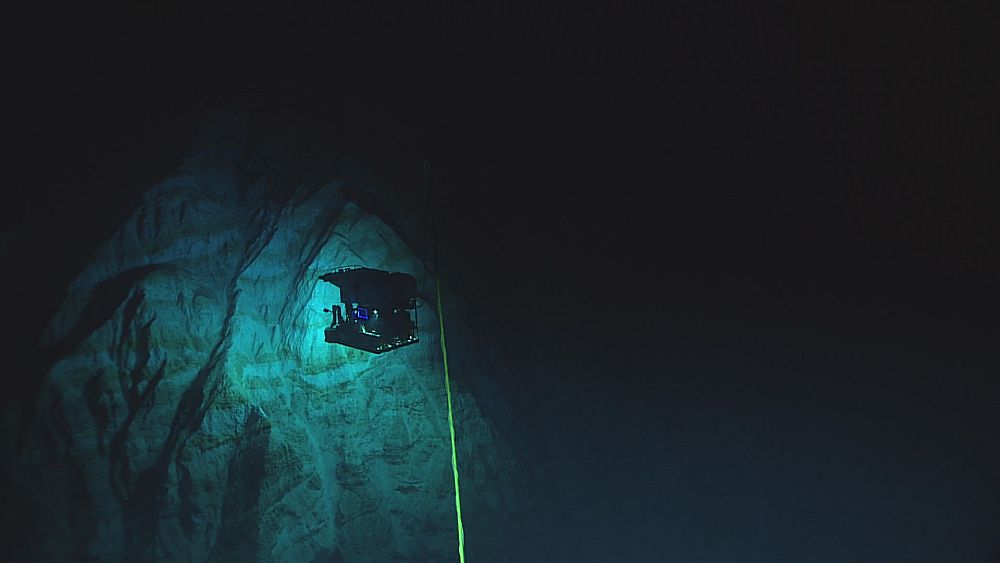Researchers have made a groundbreaking discovery deep within the Mariana Trench, suggesting they may have found the deepest known bacteriophage virus in Earth's oceans. This finding comes from a team of scientists who extracted sediments from a staggering depth of 8,900 meters in the Pacific Ocean‘s Mariana Trench, the Earth's deepest known location, which plunges to a depth of 11,000 meters near the Mariana Islands.
Marine virologist Min Wang stated, “As far as we know, this is the deepest known isolated phage in the ocean.” The results of this discovery were published by the China Ocean University team in the journal Microbiology Spectrum.
The newly identified deep-sea virus, named vB_HmeY_H4907, is a bacteriophage, a type of virus that infects bacteria and reproduces within them. This particular bacteriophage targets bacteria known as Halomonas, which are prevalent in the Mariana Trench, Antarctica, and hydrothermal vents on the seabed.
Genomic analysis of the virus has revealed its similarity to its bacterial host and its prevalence in oceanic environments. Researchers have classified this new bacteriophage as a member of the novel viral family Surviridae.
This discovery sheds light on the behavior of viruses in harsh environments, including their coevolution with bacterial hosts, in the hadal zone of the ocean. The hadal zone, named after the Greek god of the underworld, Hades, lies at depths between 6,000 and 11,000 meters.
The researchers emphasized the importance of this discovery, noting that it enhances our understanding of viruses in extreme environments, such as those characterized by low temperatures, high pressure, and complete darkness, and highlights the potential for finding new viruses in these challenging settings. Marine virologists are actively exploring other extreme environments in search of additional novel viruses.
Image:Getty Images








![Exploring Women's Porn: Insights from Creators in [Location] 9 - Instant Vista Exploring Women's Porn: Insights from Creators in [Location]](https://instantvista.com/wp-content/smush-webp/2026/01/Exploring-Womens-Porn-Insights-from-Creators-in-Location-150x150.jpg.webp)


